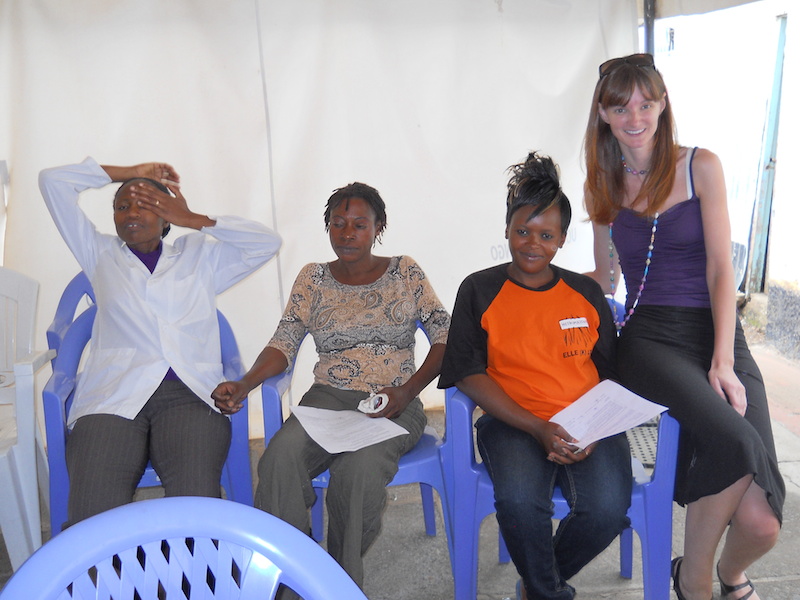
Julie Lajoie (right) at the Kenyan clinic where she will pursue her bold idea to combat HIV infection
Developing a cell phone app to detect breast cancer, and inducing HIV immunity
Two U of M researchers have been awarded $100,000 each from Grand Challenges Canada for having bold ideas.
Stephen Pistorius, U of M physics and astronomy professor and CancerCare Manitoba researcher, received federal money to pursue his team’s idea of using cell phones to detect cancer.
And Julie Lajoie, a research assistant in the department of medical microbiology in the Faculty of Medicine, received funding for her idea to coax the body into resisting HIV infection by using low-cost anti-inflammatory drugs.
Grand Challenges Canada, funded by the Government of Canada, today awarded seed grants of $100,000 each to 83 inventive ideas for addressing health problems in resource-poor countries, and Pistorius’s and Lajoie’s ideas were selected. The Grand Challenges Canada “Stars in Global Health” program seeks breakthrough and affordable innovations that could transform the way disease is treated in the developing world — innovations that may benefit the health of developed world citizens as well.
Lajoie’s project, Inducing resistance to HIV infection , will be implemented in Kenya, where the U of M has long had a strong research presence. As her prpoject description notes, some rare individuals are resistant to HIV infection — their immune systems have a phenotype called immune quiescence. Thus her project proposes to induce immune quiescence in highly susceptible women by using low cost anti-inflammatory drugs to reduce HIV incidence by 30 per cent.
Julie Lajoie explains her winning idea
Pistorius’s project, A portable breast cancer detection device using solid-state microwave detectors, will be implemented in Canada, China, Ireland, Nigeria, Portugal,and South Africa. Millions of women in rural areas and low-income countries do not have access to diagnostic imaging or breast screening programs. Using quantum physics, solid-state microwave detectors and cell phone technology, this project aims to create a portable, effective system to move breast cancer detection from clinic to home.
How Pistorius’s project works
As he told the Winnipeg Free Press, the miniature devices would be used in remote areas where other technology may not be available. “We’re not suggesting we would replace mammography,” he said.
Error thrown
Object of class WP_Error could not be converted to string






